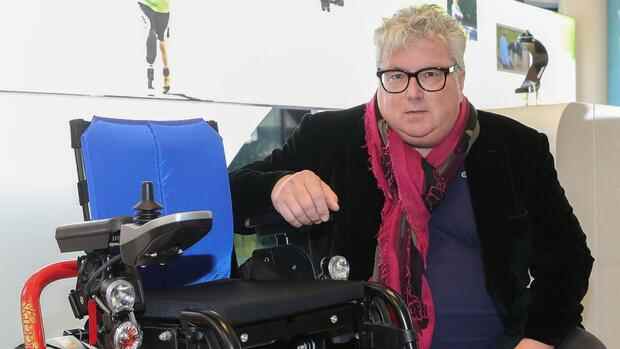Berlin, Frankfort Ottobock main owner Hans Georg Näder has been pushing the IPO of the prosthesis manufacturer since 2017. Surprisingly, he has now conceded this plan: “Due to the current geopolitical situation and the capital market environment it affects, an IPO is not desirable for us for the time being,” said the head of the board of directors on Thursday night.
CFO Kathrin Dahnke had confirmed the goal of going public just a few days ago. It is therefore not surprising that the manager had to vacate her post on Wednesday. But not only the financial expert has to go, it also affects the CEO Philipp Schulte-Noelle. A few hours after the departure of the CFO, the family-run company from Duderstadt in Lower Saxony announced its replacement.
How little this step was planned is also shown by the fact that Ottobock was unable to present a successor. Oliver Jakobi, Director of Operations, will temporarily take over Schulte-Noelle’s duties. Arne Kreitz, who has been responsible for strategy and acquisitions in the extended management team since 2018, will step in for Dahnke.
Ottobock did not give an explanation for the personal details. According to information from industry circles, the reason should be the end of the stock market dream. Under the current conditions, this cannot realistically be implemented with a targeted valuation of five to six billion euros, said a person familiar with the processes.
Top jobs of the day
Find the best jobs now and
be notified by email.
Näder and minority shareholder EQT therefore demanded that the two top executives instead focus on cost reductions and the capture of market shares. However, Dahnke and especially Schulte-Noelle would have wanted to continue pursuing the plans for going public.
Näder and EQT partner Marcus Brennecke would therefore have discussed how to proceed over the weekend. Ultimately, the CEO and CFO had to go. Initially, there was no comment from Näder and Brennecke.
Ottobock is on track economically
At first glance, the actions of the shareholders are understandable. If an IPO is not feasible, then management can address the costs and strengthen the market position. “We will focus even more consistently on the operational business, the strong customer demand and the sustained increase in our successful growth,” said Näder.
Ottobock is on the move with its products in a growing market. Last year sales rose by 13 percent to almost 1.2 billion euros. The bottom line was a profit of 20 million euros, most of which was distributed to shareholders as a dividend.
Ottobock would thus be economically on track for an IPO if the market environment were right. However, the double whammy on the board raises doubts about the company and its main owner, Hans Georg Näder, that were thought to have been overcome long ago. While the 60-year-old emphasizes the continuity of Ottobock as a family company, the seemingly erratic selection of board members is obvious.
The CEO of Ottobock also loses his post.
(Photo: Ottobock)
In the industry, Näder’s merits as an entrepreneur are undisputed. The business administration graduate took over the management of the group of companies from his father in 1990, which he successfully expanded internationally. He raised the necessary capital in 2017, among other things, by selling 20 percent to the Swedish venture capitalist EQT.
Näder is seen as idiosyncratic, as someone who doesn’t give up the helm that easily. The board of directors, which is chaired by the main owner, determines the basic line and the strategic orientation of the company, which was founded in 1919. If you want to lead the prosthesis manufacturer successfully, you have to get along well with the company patriarch.
Frequent changes in top management
The first non-family manager to feel this was Oliver Scheel, a biochemist with a doctorate, who stayed in office for a full ten months. Philipp Schulte-Noelle, son of Allianz boss Henning Schulte-Noelle for many years, then took on the role of interim boss at the same time.
The following year he was then permanently appointed Chairman of the Management Board. At the time, Näder was delighted to have found “the right manager at the right time” for the management role. Now Schulte-Noelle is also history.
Dahnke had just moved to Duderstadt from the lighting specialist Osram nine months ago in order to make the company’s finances suitable for the capital market. Her predecessor had to leave the post for health reasons.
Potential investors are likely to have been startled by the chaotic staff turnover. If the IPO is to succeed at some point, Näder must quickly ensure a stable team and success stories in order to win back the trust that has been lost.
More: Chaos days at stock market aspirant Ottobock
